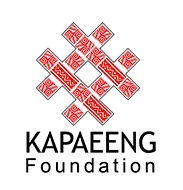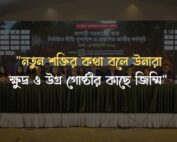Kapaeeng Foundation
The Kapaeeng Foundation was established in 2004, with a view to establishing a society based on the values of justice, equity and freedom where fundamental freedoms and human rights of indigenous peoples are ensured. The mission of Kapaeeng Foundation are, among others, to promote and protect the human rights of the indigenous peoples of the country and to conduct advocacy, lobby and campaign programme for the same at local, national, regional and international level; to establish a strong network and partnership with national, regional and international organisations and individuals working on promotion and protection of human rights as well as indigenous peoples rights and to raise the capacity of the indigenous peoples in promoting and protecting the human rights.
Kapaeeng Foundation has been working for promotion and protection of human rights of indigenous peoples in Bangladesh. Key programme of activities in promoting and protecting the human rights of indigenous peoples are to conduct lobby and advocacy activities at the local, national, regional and international levels; promotional work on ILO Convention No. 107 and 169 on Tribal and Indigenous Peoples and UN Declaration on the Rights of Indigenous Peoples (UNDRIP), networking and strengthening relationship between indigenous peoples’ organisations and communities; campaign and urgent appeals etc.
Organisational and Communication Focal Person for the SDG Platform
Pallab Chakma
Executive Director
Email: pallab.juju@gmail.com
Contact:
Mailing Address: House: 23/25, Road: 4, PC Culture Housing, Shekhertek, Mohammadpur, Dhaka- 1207
Phone: +88 02 8190801
Email: kapaeeng.foundation@gmail.com
pallab.juju@gmail.com
Social Media: Facebook
Website: http://kapaeeng.org
PARTNER’S RESPONSE ON COVID-19
“নতুন শক্তির কথা বলে উনারা ক্ষুদ্র ও উগ্র গোষ্ঠীর কাছে জিম্মি”: নাগরিক ইশতেহার ২০২৬-এর সংবাদ সম্মেলনে ড. দেবপ্রিয় ভট্টাচার্য
"উনারা নতুন শক্তির কথা বললেও শেষ বিচারে একটি ক্ষুদ্র ও উগ্র গোষ্ঠীর কাছে জিম্মি হয়ে পড়েছেন।" গত ১৫ জানুয়ারি ২০২৬ তারিখে ঢাকায় ‘নাগরিক ইশতেহার ২০২৬’ উন্মোচন উপলক্ষে আয়োজিত ‘আগামী সরকারের জন্য নির্বাচিত নীতি সুপারিশ ও প্রস্তাবিত জাতীয় কর্মসূচি’ শীর্ষক সংবাদ সম্মেলনে এভাবেই নিজের অভিমত ব্যক্ত করেন নাগরিক প্ল্যাটফর্মের আহ্বায়ক ড. দেবপ্রিয় ভট্টাচার্য।



